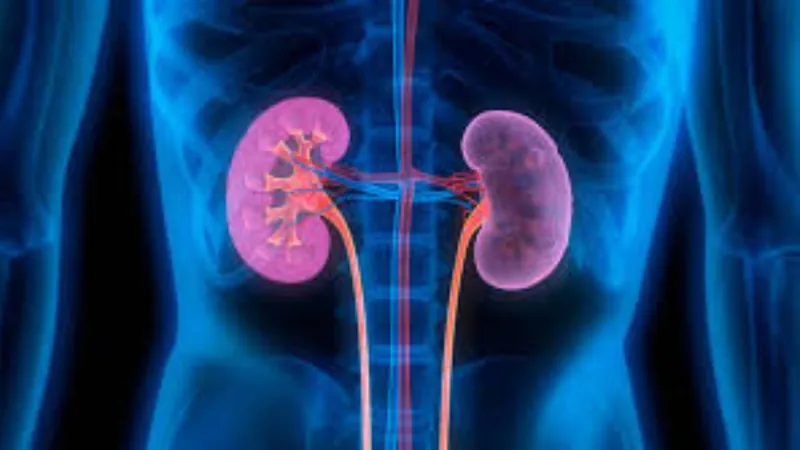
Kidney Disease: A Silent Threat That Could Double Your Stroke Risk!
2024-11-04
Author: Li
Kidney Disease and Stroke Risk
In a shocking revelation, experts are sounding the alarm on the dangerous link between chronic kidney disease (CKD) and an increased risk of strokes. Recent studies highlight how common metabolic risk factors—including hypertension, high blood sugar, obesity, and abnormal cholesterol levels—can exacerbate kidney problems and significantly heighten stroke risk for affected patients, a message echoed in a study published in the prestigious European Heart Journal.
The Statistics
The study suggests that individuals suffering from kidney failure are at a substantially higher risk for cardiovascular events, such as heart attacks and strokes. Those with reduced glomerular filtration rates—a crucial indicator of kidney function—face a staggering 40% greater likelihood of experiencing a stroke. Even more concerning, patients exhibiting proteinuria, which signals the presence of excess protein in urine, may see their stroke risk soar by approximately 70%.
Expert Opinions
Dr. PN Renjen, a Senior Consultant in Neurology at Indraprastha Apollo Hospitals, remarked on the complex interrelationship between CKD, metabolic syndrome (MetS), and stroke, emphasizing how the metabolic syndrome—which encompasses obesity, hypertension, dyslipidemia, and insulin resistance—poses a formidable risk, not only contributing to the development of CKD but also elevating the risk of cardiovascular diseases, including strokes. Individuals diagnosed with MetS are reportedly 50% more likely to develop CKD than their healthier counterparts.
Understanding the Mechanisms
The mechanisms are intricate. Dr. Renjen explains that oxidative stress, inflammation, and endothelial dysfunction can converge to compromise kidney function while simultaneously raising stroke risk. Dr. Darshan Doshi, a Consultant Neurologist at P. D. Hinduja Hospital and Medical Research Centre, further emphasizes the dire connection. Chronic inflammation, insulin resistance, and vascular damage serve as a link between stroke and metabolic syndrome. This risk escalates for those with CKD, particularly for patients undergoing dialysis, who are vulnerable to both ischemic and hemorrhagic strokes.
Preventive Measures
In light of these findings, experts are urging the public to take proactive steps in managing health conditions such as hypertension, diabetes, and cholesterol through lifestyle changes—including diet and exercise—to mitigate the risks associated with CKD and its deadly implications.
Conclusion
In addition to these actionable strategies, individuals should be aware of their kidney health and seek regular check-ups, especially if they belong to high-risk groups. With strokes being the second leading cause of death globally, awareness and prevention are crucial in protecting your health.
Don’t ignore the signs—your kidneys might be sending you a warning that could save your life!


 Brasil (PT)
Brasil (PT)
 Canada (EN)
Canada (EN)
 Chile (ES)
Chile (ES)
 España (ES)
España (ES)
 France (FR)
France (FR)
 Hong Kong (EN)
Hong Kong (EN)
 Italia (IT)
Italia (IT)
 日本 (JA)
日本 (JA)
 Magyarország (HU)
Magyarország (HU)
 Norge (NO)
Norge (NO)
 Polska (PL)
Polska (PL)
 Schweiz (DE)
Schweiz (DE)
 Singapore (EN)
Singapore (EN)
 Sverige (SV)
Sverige (SV)
 Suomi (FI)
Suomi (FI)
 Türkiye (TR)
Türkiye (TR)